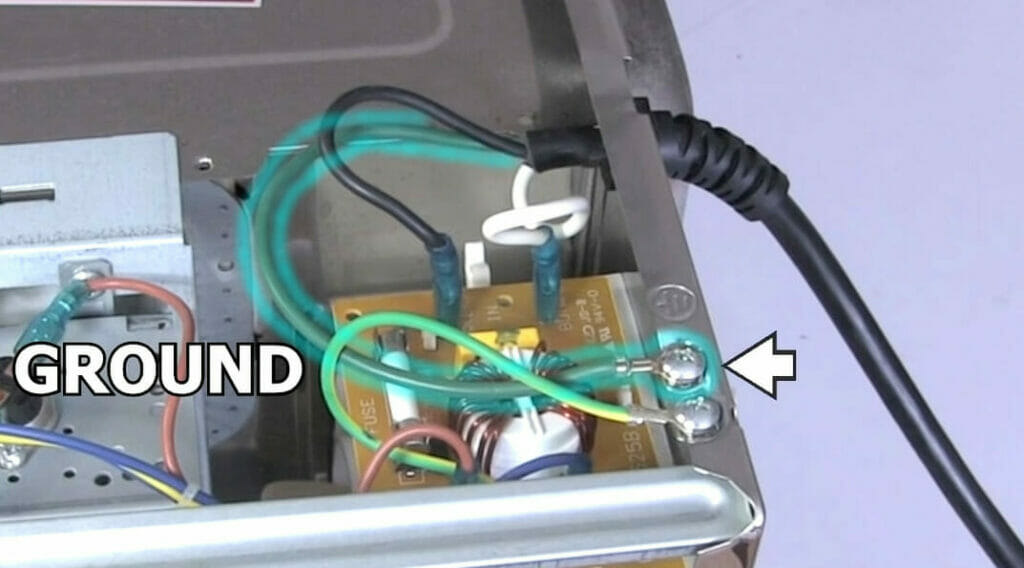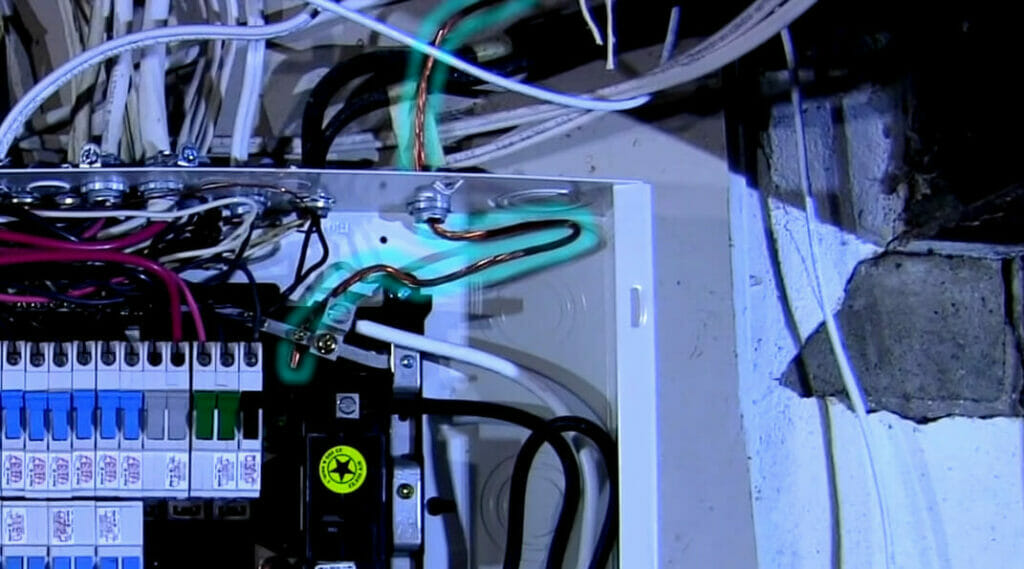What Does a Ground Wire Do? (Critical Role & FAQs)

Understanding the role of a ground wire in an electrical circuit is crucial for safety and functionality.
Ground wires serve as a backup route for electricity during malfunctions, leading stray currents harmlessly into the ground. Connected between an appliance and a grounded point, they are key safety features in household wiring, appliances, electronics, automotive systems, and outdoor installations. Ground wires guard against electrical overloads, prevent shocks, enhance equipment safety, and improve system stability.
Let’s dig deeper into the topic!
The Role of a Ground Wire in an Electrical Circuit

Consider ground wires the designated detour for electrical currents when things go south. They act as a backup route for electricity in the event of an electrical malfunction.
For instance, if a glitch in your circuit – perhaps a wire has come loose in your toaster, or there’s a hiccup in your circuit breaker – the ground wire becomes the go-to path for the misdirected electrical current.
It offers a safe and easy route for this current to follow, leading it harmlessly into the ground.
Each ground wire has two crucial connection points. One end is securely anchored to the appliance or electrical device. The other end is linked to a grounded (earthed) point.
This grounded point could be a metal rod driven into the earth or a specific conductor within your home’s electrical panel.
These connection points ensure the ground wire can effectively carry any misdirected electrical current away from your appliances and safely into the earth.
Though an integral part of the circuit, the ground wire isn’t on active duty during regular operation.
It’s more like a vigilant sentry, always on standby and ready to leap into action should there be an electrical anomaly that causes an unexpected surge.
This proactive response maintains safety in our everyday use of electrical appliances.
Key Functions of a Ground Wire
| Function | Explanation |
|---|---|
| Protection from Electrical Overloads | Ground wires redirect excessive electricity into the ground, preventing damages from overloads |
| Prevention of Electrical Shocks | By guiding electricity away from appliances and users, ground wires prevent electrical shocks |
| Enhanced Equipment Safety | By offering a safe path for electrical faults, ground wires help prevent potential damage to equipment |
| Improved System Stability | Ground wires maintain a uniform voltage level, contributing to overall electrical system stability |
Ground Wire in Various Applications

Ground wires play crucial roles across a broad range of applications. They are not just confined to our homes’ electrical systems but extend to a myriad of devices and equipment we interact with daily.
Let’s delve into a few of these applications:
- Household Wiring: In-home electrical systems, ground wires are essential components. They run alongside other wires from your home’s electrical panel to every power outlet and light fixture, offering a safety path for any stray electrical current to the ground.
- Appliances: A ground wire is included in the plug or wired into most household appliances, from your refrigerator to your hairdryer. It provides an escape route for electrical faults, preventing you from experiencing shock when touching the appliance.
- Electronics: In electronics, ground wires have a dual function. They provide a safety mechanism for electrical faults and help reduce electrical ‘noise’ or interference, which could affect the functioning of sensitive devices like computers, televisions, and audio equipment.
- Automotive Systems: Cars and other vehicles make extensive use of grounding. The vehicle’s metal frame typically acts as a grounding pathway, with ground wires connecting electrically powered components to the frame. This grounding setup helps ensure the reliable operation of the vehicle’s electrical systems and prevents potential damage from electrical faults.
- Outdoor Installations: Ground wires, such as exterior lighting or power tools, are also essential for outdoor electrical installations. They help ensure these installations are safe, even in variable weather conditions.
In each of these applications, the ground wire is critical in ensuring electrical safety and reliable operation of devices and systems.
Its importance can’t be overstated as it quietly works behind the scenes, protecting us from potential electrical hazards.
Safety Benefits of a Ground Wire
Ground wires offer several crucial safety benefits. They protect against several electrical risks when correctly installed, ensuring your circuits’ smooth and safe operation.
Below, let’s examine these benefits:
- Protection against Electrical Overloads: Electrical overloads happen when the current flowing through the circuit surpasses what the circuit is designed to handle. Overloads can damage the circuit, cause fires, or lead to electrical shocks. Luckily, the ground wire comes to the rescue by redirecting this excess electricity safely into the ground, significantly minimizing these risks.
- Prevention of Electrical Shocks: A ground wire plays a pivotal role in guarding against electrical shocks. For instance, if a fault makes the casing of an appliance become ‘life’ or electrically charged, the ground wire intervenes. It ensures the excess electricity finds its way to the ground instead of jolting you with an unpleasant shock when you touch the appliance.
- Enhanced Equipment Safety: Ground wires also help to safeguard your electrical devices and appliances. Providing a safe path for electrical faults prevents potential damage to your equipment, thus prolonging its lifespan.
- Improved System Stability: By maintaining a uniform voltage level, ground wires contribute to the overall stability of your electrical system. This can be particularly crucial for the proper functioning of sensitive electronic equipment.
In a nutshell, the ground wire operates much like a personal bodyguard. It protects you, your home, and your appliances from the potential dangers of electrical faults and stray currents.
FAQs
What is the color of a ground wire?
In the United States, ground wires are typically green, green with a yellow stripe, or bare copper. In Europe, they are generally green with a yellow stripe.
Can a circuit work without a ground wire?
A circuit can operate without a ground wire, but it won’t be safe. The ground wire protects the equipment and the user from electrical faults by providing a safe path for stray currents.
Can I use a neutral wire as a ground wire?
No. While neutral and ground wires return current to the source, they have different purposes. The neutral wire carries current under normal operation, while the ground wire only carries current during a fault. Mixing these up can lead to serious safety risks.
What happens if a ground wire is not connected?
Electrical faults may not be safely discharged into the ground if a ground wire is not connected. This can damage equipment, electrical fires, or even electrical shocks to the user.
Is it safe to touch a ground wire?
Under normal conditions, it should be safe to touch a ground wire because it shouldn’t carry current. However, the ground wire may carry a stray current if there’s an electrical fault. Therefore, switching off the power supply before touching any wires is always best.
Can I install ground wires myself?
While simple electrical tasks can be performed by a competent DIYer, installing ground wires often involves dealing with the main electrical panel, which can be hazardous if not handled correctly. It’s safer to hire a professional electrician for such tasks unless you have the necessary knowledge and skills.
How can I check if my ground wire is working?
A circuit tester or multimeter can check if your ground wire functions correctly. If you’re unfamiliar with these tools or unsure how to use them, hiring a professional electrician is recommended.
Remember, these answers may vary depending on the electrical codes in your area, and it is always recommended to consult a professional electrician or your local electrical authority for more accurate and personalized advice.
References
Organizations:
- Electrical Safety Foundation International (ESFI). https://www.esfi.org/
- National Electrical Manufacturers Association (NEMA). https://www.nema.org/
Books:
- “Wiring a House: 5th Edition” by Rex Cauldwell
- “Electrical Grounding” by Ronald P. O’Riley
Websites:
- The Spruce. https://www.thespruce.com/
Video Reference
RimstarOrg
